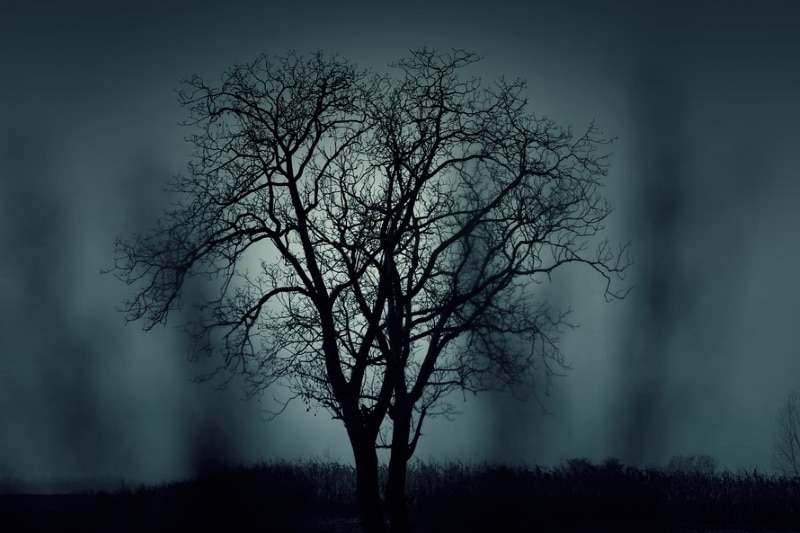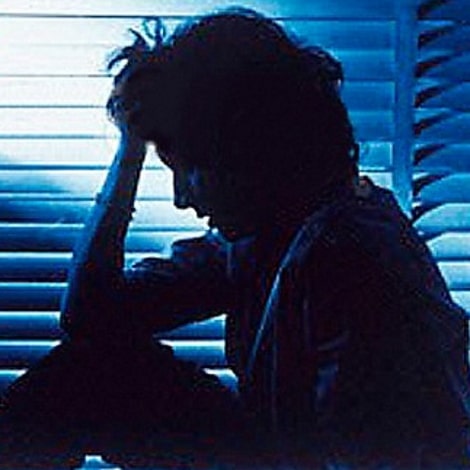What are Night Terrors?
Night terrors differ from nightmares in that the person experiencing them often has no recollection the following day. They usually occur in children under the age of twelve, though some adults suffer from them also. They are usually more frightening for the parent or partner witnessing the episode. Often people mistake a really bad nightmare or sleep paralysis for night terror.

Symptoms of Night Terrors
The person having the night terror may scream, cry, shout, thrash about, hallucinate and even sit up with their eyes open. They are not really awake. They may sweat heavily, claw at the blankets and get out of bed. Some appear to be speaking to a third presence in the room. Occasionally adults may become aggressive, even if they are normally mild-tempered. It is a scary sight to see your loved one caught up in this terrifying experience.
Causes of Night Terrors
Night terrors generally occur during the first few hours of sleep. Causes can be extreme tiredness, stress, fever or other short illness, chronic disease, medication, a full bladder or a disruption of normal routine, such as sleeping in an unfamiliar place.
In adults, they can be caused by illness, disease and medication, alcohol, relationship problems or some other waking stressor. Breathing disorders, such as sleep apnea and head injuries can also cause night terrors. Other reasons may be migraines or restless leg syndrome.
How to Prevent Night Terrors
In children, night terrors generally disappear as the child gets older. They may not be preventable, but it is possible to minimize their occurrence by addressing the causes. Ensure that the sufferer does not become overtired. Make sure they are comfortable and have gone to the bathroom – it’s surprising how many children (and adults) forget to empty their bladder before bedtime. If they are on medication or are ill, the night terrors should cease as they become well. If the illness is long-term, then consult your physician as it may be possible to change or adjust the medication.
Preparation for sleep should be routine and comforting. A warm non-caffeinated drink, a bath, a gentle story or non-stimulating book will relax and soothe the subject (and you) into an undisturbed night’s sleep.
If your child doesn’t remember the episode, then don’t draw their attention to it. Look to possible causes and deal with them. Adhere to a simple evening routine to settle the child. In adults, again, try to determine the cause. If temporary, then you will simply have to ride it out until the problem is resolved. If long-term, then consult your doctor for further advice.
What is Sleep Paralysis?
Sleep paralysis is a natural phenomenon during normal sleep. Except that you don’t know it’s happening. Your muscles relax into a state that resembles paralysis. The problems arise when this carries on as your brain awakens.
Sleep paralysis is a terrifying experience. The ‘victim’ awakes from a dream or nightmare to discover they are unable to move. They are paralyzed. The episode passes in moments or a few minutes at worst, but while it’s happening, the person feels as though they are caught between life and death.
People report feeling as though they are in a life-threatening situation and not being able to run or defend themselves. Some describe an attacker attempting to kill or rape them. One person says that each time it happens she feels as though there is a heavy weight on her body. Another person describes not being able to breathe at all. Some say that they feel as though insects or rats are crawling all over them. Religious people often report that they ‘feel’ or see demons in their room or even within themselves.

Photo Credit: Markus Pylkkänen Photography via Compfight cc
Causes of Sleep Paralysis
The causes of recurring sleep paralysis are similar to those of night terrors above. Sleep disruption and extreme tiredness are usually the main culprits It generally happens during REM stage (dreaming) sleep, which is why people connect the paralysis with the dream they were just having. The neurons responsible for movement are literally in suspended animation. One theory is that while this is happening, healing and regeneration of the neurons are taking place. Teenagers are more likely to experience sleep paralysis than young children and adults.
It’s possible there is a family history of sleep paralysis, or that the subject suffers from narcolepsy (sudden and unpredictable falling asleep).
Problems Caused by Sleep Paralysis
The experience is so scary that suffers will revisit the episode over and over. This causes stress which can lead to it happening again. Some report PTSD symptoms and receive treatment accordingly. If the paralysis occurs frequently, it can have an extreme negative effect on the quality of life, making the person fearful of sleeping at all. Obviously, no-one can lead a normal life with this kind of fear hanging over them.
How To Control Sleep Paralysis
Medical advice is usually general: adopt good sleeping habits, get regular exercise, refrain from brain stimulation – don’t watch movies or read adventure stories before bedtime. Eat properly and give up caffeine, alcohol and nicotine. Some doctors will prescribe anti-depressants in extreme cases.
The best way to deal with sleep paralysis is to understand why it is happening. Once you realize that it is a natural physiological occurrence; think of it as the body entering ‘maintenance mode’, you may be able to reassure yourself when it happens. This isn’t always possible, of course. Generally the subject grows out of it. Often it is a one-off experience so there is no need to worry about it or take action.
You could teach yourself to adopt relaxation exercises and techniques when sleep paralysis occurs. Train yourself to keep your eyes closed and visualize something mundane, such as your breakfast, the journey to school, or a pet. Or just remember that it’s temporary and recovery happens very fast.
If you are having serious problems with either night terrors or sleep paralysis, we highly recommend you talk to a medical professional.


0 Responses
Hey. Could you please post some sources and references to the fact that sleep paralysis could be correlated with neuron healing please?
Otherwise – nice article, thanks 🙂
Best regards,
Invoker
Hi there, thanks for getting in touch. Sleep paralysis isn’t necessarily correlated with neuron healing, but REM is. SP occurs during the REM phase. It was stated as ‘one theory’ not as fact. Hope that helps 🙂
Have sleep paralysis, night terrors, restless legs syndrome my wife trys to wake me and im agressive and a lot of name calling with no recolection and im a very humble relaxed guy regular stress but this has taking it to a whole new level i also suffer from anxiety and magor depression was put on mirtazipine 30 mg but every single night i had night terrors with the paralysis happening twice of so a week im really frustrated and witts end feelibg like im on the verge of snapping i feel absolutely exhuasted all day long from actibg out my dreams im clean from alcohol but i use marijuana as a extra sleep aid. Doc now has me on temazapam 30mg but feelibg like its putting me to sleep but the nightmares terrors and paralysis are presistent. I go see a sleep clinic in August im absolutely terrified and not much scares mme but this is draining all my energy and destroyibg my life
Hi Brandon, I would guess this is a medical issue and not a psychic one. You might try soothing your soul by practising meditation before bedtime. Not qualified to give medical advice here but make sure you deal with any mineral deficiencies — potassium and magnesium, etc. Get off caffeine and the weed for a while.